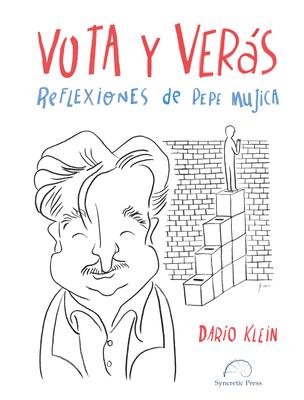Vota Y Ver�s.: Reflexiones de Pepe Mujica

Vota Y Ver�s.: Reflexiones de Pepe Mujica
In the United States, the president comes to power essentially because three out of every ten citizens vote for him. Of the remaining seven, four do not vote and three vote against him. In the midterm elections, these figures are even more drastic: the entire House of Representatives and a third of the Senate answer to the "popular will" of just two out of every ten citizens. It is with this backdrop that we sought out José "Pepe" Mujica, President of Uruguay from 2010 to 2015 and labeled as "the poorest president in the world" during his presidency. Through the lens of his experience as an activist, revolutionary, political prisoner, legislator, and president, Mujica helps us view politics in a different way. He invites us to reflect on the power an individual can wield by voting. On the power an individual forfeits by not participating in elections. On the importance of at least being able to say you tried.
PRP: 122.61 Lei
Acesta este Pretul Recomandat de Producator. Pretul de vanzare al produsului este afisat mai jos.
110.35Lei
110.35Lei
122.61 LeiIndisponibil
Descrierea produsului
In the United States, the president comes to power essentially because three out of every ten citizens vote for him. Of the remaining seven, four do not vote and three vote against him. In the midterm elections, these figures are even more drastic: the entire House of Representatives and a third of the Senate answer to the "popular will" of just two out of every ten citizens. It is with this backdrop that we sought out José "Pepe" Mujica, President of Uruguay from 2010 to 2015 and labeled as "the poorest president in the world" during his presidency. Through the lens of his experience as an activist, revolutionary, political prisoner, legislator, and president, Mujica helps us view politics in a different way. He invites us to reflect on the power an individual can wield by voting. On the power an individual forfeits by not participating in elections. On the importance of at least being able to say you tried.
Detaliile produsului








